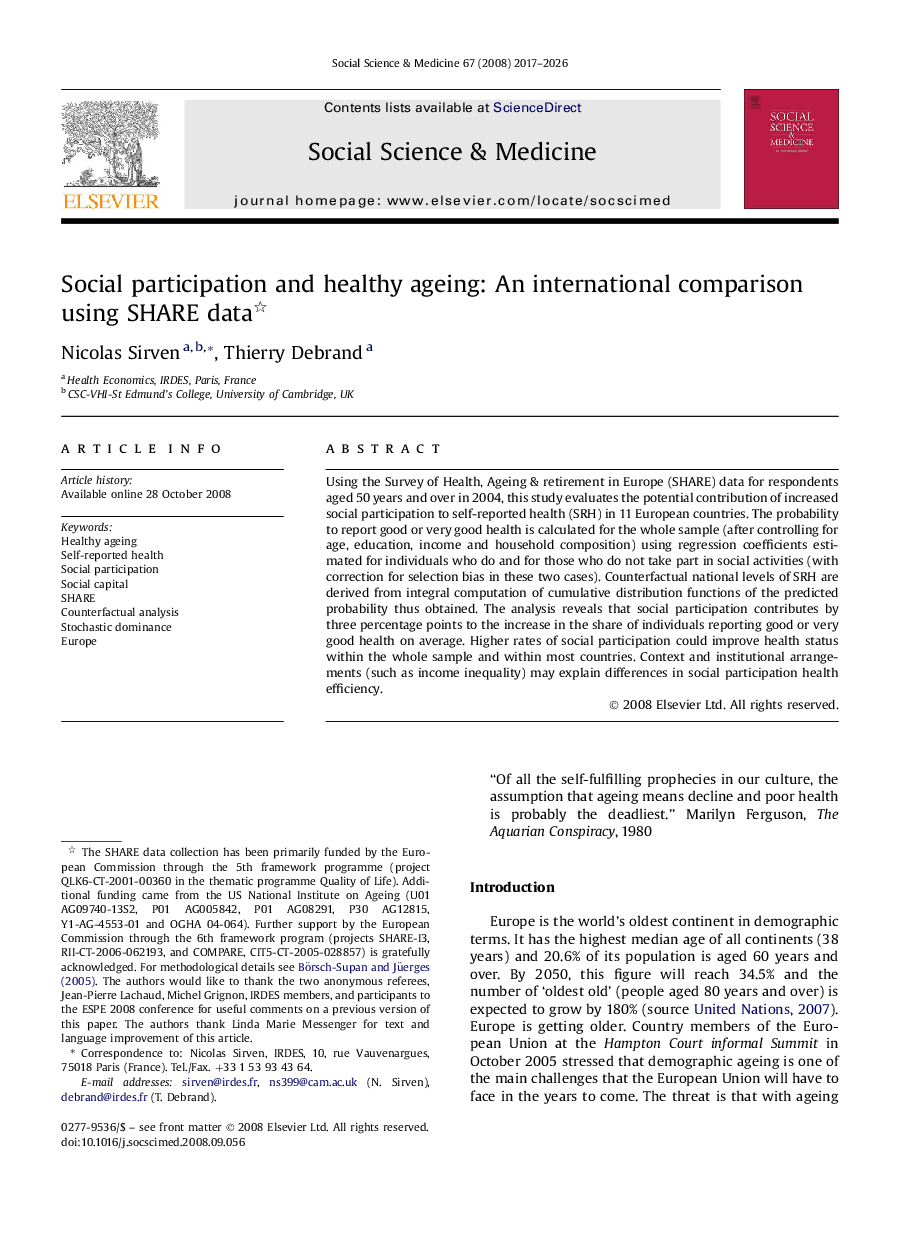| Article ID | Journal | Published Year | Pages | File Type |
|---|---|---|---|---|
| 953586 | Social Science & Medicine | 2017 | 10 Pages |
Abstract
Using the Survey of Health, Ageing & retirement in Europe (SHARE) data for respondents aged 50 years and over in 2004, this study evaluates the potential contribution of increased social participation to self-reported health (SRH) in 11 European countries. The probability to report good or very good health is calculated for the whole sample (after controlling for age, education, income and household composition) using regression coefficients estimated for individuals who do and for those who do not take part in social activities (with correction for selection bias in these two cases). Counterfactual national levels of SRH are derived from integral computation of cumulative distribution functions of the predicted probability thus obtained. The analysis reveals that social participation contributes by three percentage points to the increase in the share of individuals reporting good or very good health on average. Higher rates of social participation could improve health status within the whole sample and within most countries. Context and institutional arrangements (such as income inequality) may explain differences in social participation health efficiency.
Keywords
Related Topics
Health Sciences
Medicine and Dentistry
Public Health and Health Policy
Authors
Nicolas Sirven, Thierry Debrand,
